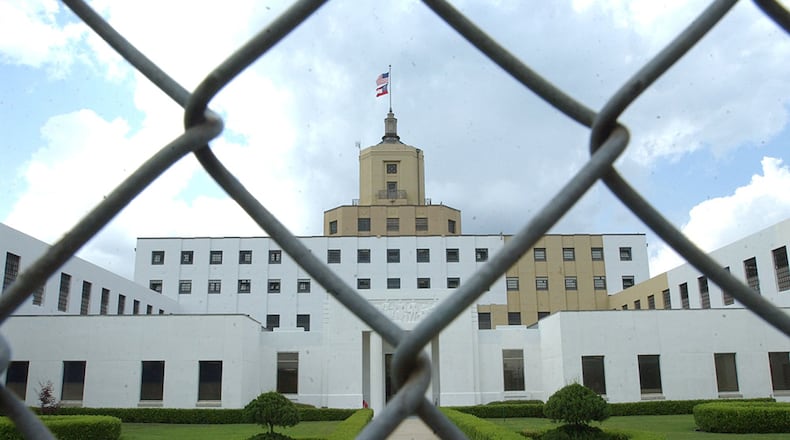Criminal enterprises operated by prisoners target the public: Nearly two dozen major drug trafficking operations run by Georgia state prison inmates have been identified by law enforcement authorities in recent years. Most trafficked drugs inside prisons and surrounding communities; some were throughout Georgia and neighboring states. In addition, some state prison inmates, with the help of correctional officers, have orchestrated other criminal enterprises that have made them rich. One pulled off an $11 million scam against a billionaire; another ran a contraband scheme and protected it by allegedly ordering the murders of three people outside the prison system; and another is accused of murder, drug trafficking and fraud. Other prisoners extort family members for protection money, run jury scams or pull off other frauds.
The public is in the dark when prisoners escape or pose other risks: The Georgia Department of Corrections in recent years has clamped down on information. Among the moves, the GDC doesn’t issue news releaseswhen inmates escape and doesn’t tell the public how prisoners got out or what was done to prevent further escapes. In July, a man who had escaped from the Atlanta Transitional Center was arrested and charged in a fatal stabbing on the Atlanta Beltline. The GDC hadn’t issued a news release about the escape and did not issue news releases about escapes from Baldwin and Johnson state prisons last year, though GDC did post on social media that it was looking for the prisoners from Baldwin and Johnson. At times, the GDC has also restricted public access to critical information about corruption.
Record violence is driving up taxpayer costs: The GDC had at least 38 prison homicides last year, a record for the state and more than any other Southern state. This year may be worse. Preliminary information indicates at least 24 homicides in the first half of 2024. Other violence — stabbings, beatings, strangulation — happened, on average, twice a week in the 12 months from March 1, 2023, to March 1, 2024, incident report data shows. More than 500 prisoners were transported to hospitals in that time after assaults. Local district attorneys are saddled with the costs of prosecuting prison homicides in the prison system, as well as drug-trafficking and other crimes that spill over to local communities. What’s more, the state has to pay millions more in unexpected prison health care costs, largely due to extra costs from prison violence.
Taxpayers are saddled with other costs from prison system failures: The state has also paid out more than $20 million since 2018 to settle claims that prisons failed to provide medical care, protect prisoners from violent attacks and check on those who are suicide risks. Then, in April, a federal judge imposed a fine of $2,500 a day for the state’s failure to comply with his order to improve conditions at the Special Management Unit, which is Georgia’s version of a supermax prison. The judge also ordered the appointment of an independent monitor at the prison system’s expense.
Most prisoners will be released one day: Only about 2,000 of Georgia’s state prison inmates are serving sentences that stipulate they will never be released, according to Department of Corrections data obtained by The Atlanta Journal-Constitution. The other 41,000 have the possibility of parole one day. Rather than return to society rehabilitated, some have joined gangs in prison or taken part in criminal enterprises. Others who failed to be provided needed psychiatric or other medical care while locked up will return to society suffering from debilitating conditions. Exposure to the pervasive violence and other trauma will leave others struggling with PTSD. These men and women will often return to their home communities.
Editor’s note: This story has been updated to include information that the GDC posted on its social media sites that it was looking for prisoners from Baldwin and Johnson state prisons.
Keep Reading
The Latest
Featured

